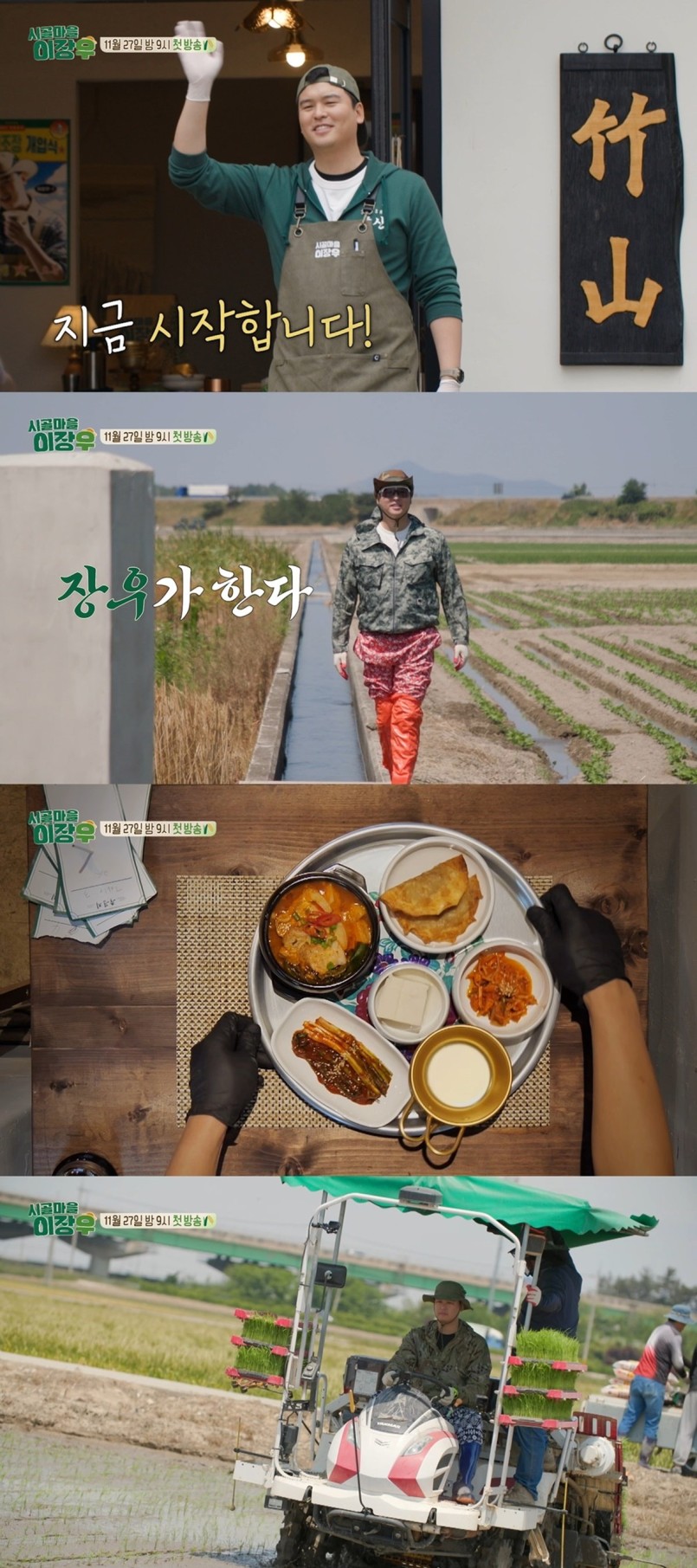While the glamorous life of a TV and movie star badass in this country would tempt most with diamonds, fast cars, and 14-room penthouses, this week, actor Lee Jang Woo went all country-style, and it looked like a welcome break from this world.

Living in Gimje, Jeollabuk-do, he has since transitioned into agriculture on 1200 pyeong (39,600 ft²) of land.
The actor also introduces his experience of returning to and revitalizing rural life in the new MBC program "Country Village Lee Jang Woo."
Set in a dilapidated brewery, he has turned into a hub for locals. The show focuses on regionalism and the need for sustainable agriculture, following Lee through its seasons.
Premiering on Nov. 27, the first preview shows Lee growing his rice paddy and dreaming about the makgeolli he'll be brewing with his yields.
Lee was enthusiastic about the agricultural venture, saying, "I believe it will be an incredible makgeolli."
His confidence is reflected in his hope that "everyone will really like it."
Read more: Kim So Yeon Reveals Surprising Visit to a Sex Toy Shop With Husband For a 'Virtuous Business'

Lee learns about local cuisines -- including one elusive "hidden master" of Jeolla-do cooking -- during his farming journey.
A timeline from the show includes him telling us how wonderful his neighbor's green onion kimchi was.
When Lee asked his mom for the recipe (that is, after a genuine challenge of its different flavors), it'll certainly have a level of specialization that only rural Korea's culinary presentation could have sculpted after many decades of living.
After all, the newly renovated brewery's opening ceremony—much of which involved Lee laboring in the seasons leading up to it—was a pretty big deal.
Interest in the new event was extremely high—over ten times more applicants than anticipated.
Their guests were treated to surprise appearances by friends from his acting days, including Girls' Generation's Yuri and actor Yoon Si-Yoon.
And with Lee Jang-woo beginning this new venture outside of acting, the question of whether he can whip the rural village of Gimje into shape remains to be seen.
Lee is looking to reconnect tradition and modern times through simpler farming methods in an age where everything is about convenience and nature and community taking part in the process.












